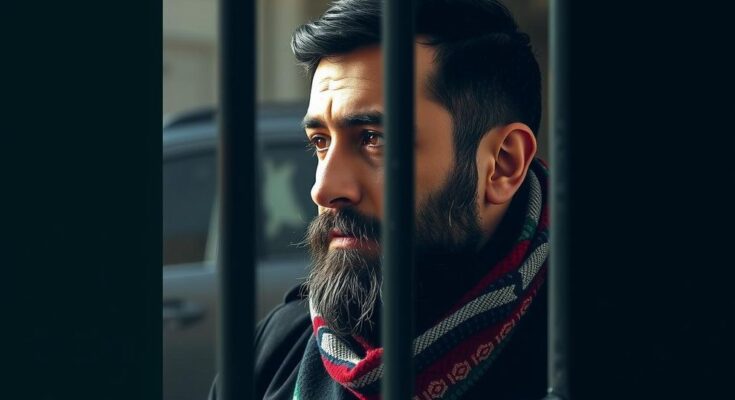Kurdish activist Ali Allah-Veysi has been sentenced to 18 months in prison for charges related to national security and propaganda against the state. This recent ruling follows a complicated legal history, including prior arrests and brief periods of detention, reflecting the ongoing challenges faced by Kurdish activists in Iran.
In a significant ruling, Kurdish civil rights activist Ali Allah-Veysi has been handed an 18-month prison sentence by the Islamic Revolutionary Court in Sanandaj. This sentence stems from charges of acting against national security linked to his association with the Komala Party of Iranian Kurdistan, compounded by a six-month term for propaganda against the state. Judge Mostafa Azizi presided over the trial that commenced on November 12, culminating in the sentence delivered on November 17.
Previously a political prisoner, Allah-Veysi’s journey through the justice system has been tumultuous. After a tumultuous arrest by the Ministry of Intelligence, he faced weeks of detention that ended in a brief release on August 14, following a bail set at a staggering five billion rials, roughly $7,000. He was not a stranger to arrest; his initial apprehension occurred on May 8, 2021, alongside fellow activists, marking the beginning of a challenging struggle for political freedom.
The backdrop to Ali Allah-Veysi’s sentencing is the broader context of Kurdish activism in Iran, where state suppression often targets those advocating for civil rights and political reforms. The Komala Party of Iranian Kurdistan stands as a symbol of Kurdish self-determination, and government accusations against its members frequently lead to severe legal repercussions. The incessant clampdown on democratic freedoms in Iran raises critical concerns about human rights violations, making cases like Allah-Veysi’s emblematic of the struggles faced by many activists.
Ali Allah-Veysi’s sentencing sheds light on the precarious situation for Kurdish activists within Iran’s socio-political landscape. As he navigates this new chapter behind bars, his plight raises pressing questions about human rights, freedom of expression, and the ongoing struggle for Kurdish political representation. His case is a poignant reminder of the risks faced by those who dare to speak out against oppression.
Original Source: kurdistanhumanrights.org



